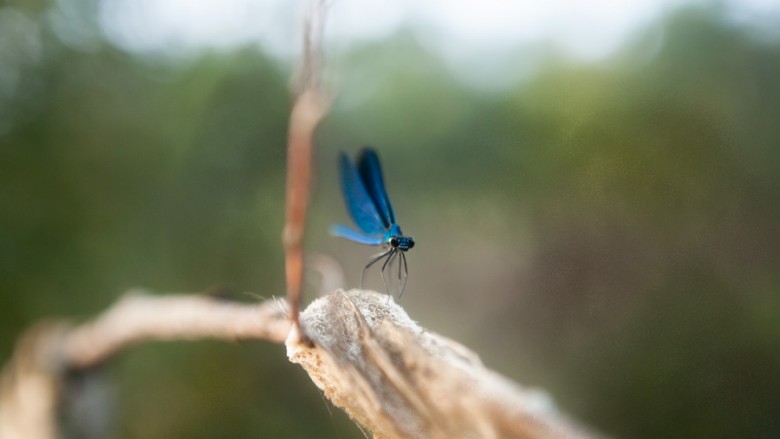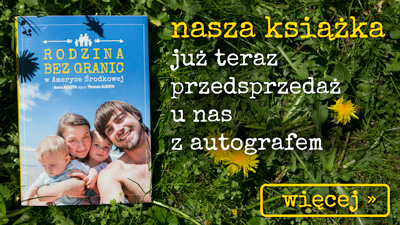
Is it a butterfly or a dragonfly? What flag do they have here? And in what country will we wake up tomorrow? – Balkans, Bosnia and Herzegovina, Republika Srpska (where we started) is not the easiest place to be with, a 4-year-old, asking about everything around, girl. Not easy to find your own answers, not talking about translating it into her language.
After fast drive through Hungary and Croatia – we came to BiH from the north. – So here we are in Republika Srspka! – I said. – Not in Bosnia and Herzegovina? – Hanna asked. – Yes, yes, in BiH but…
In the most simple way ever: Bosnia and Herzegovina, one of few beautiful crumbles of oldie Yugoslavia, is divided into two entities: Federation (where mainly Bosniaks and Croats live) and the Republika Srpska (with a majority of Serbs). There is still a third part: kind of independent Brcko Region, quite a happy place, between Federation, Republik and Serbia. In Brcko we drunk an amazing coffee and we had a night with a lot of mosquitoes – you will still hear about it later.
Anyways, Bosnia and Herzegovina is a lovely political roller-coaster and it is NOT a fully united and centralised state at all. But I do believe that this beauty about which I was writing some days ago, one day will help to get it better and better.
We woke up in a Kozara National Park, between few families celebrating the end of harvest.
First thing: a group of little girls singing loud songs of Goran Bregovic. Feels like home (one of my mum’s favourite CD is Bregovic’s music and Polish singer Kayah singing). So we could sing together! Girls in Serbian, me and my girls in Polish. Good beginning. Second thing: only when we got up and went out of the car – we received a bottle of rakija into our hands. Very tasty one, what a breakfast! Third thing: a Peppa Pig (thanks to the kids’ cartoon our girls love pigs and were super excited to meet them in the evening and give them some names) was hanging, together with her friend the sheep and two chickens – on some crazy construction above the fire.
1+2+3 means: we must have been in Republika Srpska. It was the last week of the Ramadan, Bosniaks wouldn’t drink alcohol and eat the pig for sure.
We talked a bit, the families were singing, playing football (all the families: men, women and kids altogether, I loved it!), drunk and ate. Hanna felt in love with 50+ Mirko (sometimes it happens that from the first second she just wants to be all the time with somebody, Mirko’s got her heart in mini second).
Love and football playing was clear for us from the first moment, but all the political games are not evident for the visitors of BiH.
If you are not really interested, you will not get anything. Ok ok, maybe if you watch carefully – you will notice so many destroyed houses and so many not finished but abandoned houses and so big, symbolic churches (in Srbska) and so big, symbolic mosques (in Federation) and the road signs in both languages and the mines’ signs…
And if you ask some questions – you will know that BiH has an enormous numbers of ministries, deputies, entity governments and municipal governments. That only the Federation has 10 regional cantons and each canton has its own government responsible for taxes, education, public work, policing. And that there is still a Federation government, responsible for trade, health, military, communication, parliament. And that Republika has also its parliament and for example Ministry of Foreign Affairs and Commerce and Foreign Trade….
Or that there are over 50 political parties in BiH! Or that all the 3 main groups of people had serious difficulties to agree on the flag of the country. Or that there are 3 official languages: Bosnian, Croatian and Serbian. This division has a great importance for all of the local people but the differences are similar (as they told us) to those between American and British English.
But how should it be different? Just imagine that in your country there are 14 ministries of education and each of them follows a separate programme. And each of the group is learning something else. And that teaching the history after 1992 is forbidden, because it’s officially still not clear what, how and by whom has happened.
I loved some sentence which Bregovic said to a portal cleveland.com, while being asked about all this situation: – „Yugoslavia is the intersection of so many worlds: Orthodox, Catholic, Muslim. With music, I don’t have to represent anyone except myself — because I speak the first language of the world, the one everyone understands: music.“ Let’s sing something together?

Our first book is out!
We have published our first book (for now just in Polish:) about our Central America Trip.
See, read and order here »

















2 Comments
I also learn from you, but I thirst for to attain my goal.Of programme naturally I like reading all posted in your blog.To stipulate the information.I like it!
Na zdjęciu 17 to latające stworzenie to ŚWITEZIANKA,samiec.
Tak, spalone, opuszczone domy-to jeden ze sladów wojny.Ale najgorsze są trwajce od lat urazy psychiczne,trauma, która często nie została wymazana z pamieci i nigdy już nie zniknie.Strach i stres, który ludzie przeżyli odbija się na ich zdrowiu. Wielu umiera młodo albo przedwcześnie.W rejonie w który ja jeżdżę, w ciągu 10 lat umarło już dużo młodych ludzi z najbliższego sąsiedztwa.Wielu na raka.Nikt tego nie bada,ludzie sądzą, że to pewnego rodzaju radioaktywne substancje używane podczas wojny po latach dają o sobie znać.wiem co mówię, mój mąż pochodzi z Serbii, bywam tam co roku.
A Bregović-no cóż, też go lubię, ALE wziął i wykorzystał popularną muzykę Romską (Cygańską), zarobił na niej mnóstwo forsy.Nie jest tam ( w Serbii) lubiany przez zbyt wiele osób, raczej popularny na zachodzie. Jeśli spytasz przeciętnego Serba, czy lubi Bregovicia, to raczej się skrzywi…Więc nie jest on najlepszą osobą,której słowa można cytować, jeśli mowa o Bałkanach.
pozdrawiam!